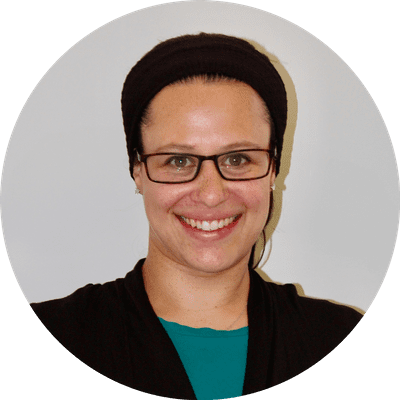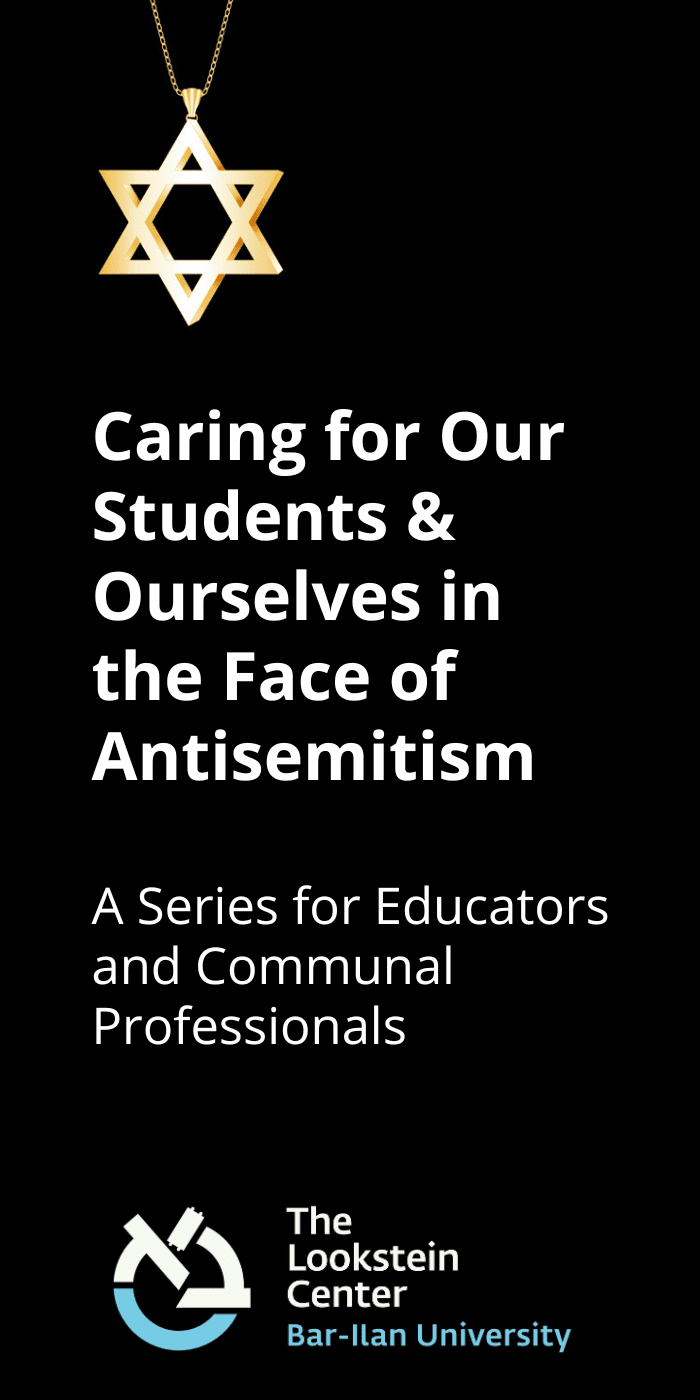Passion, Mentoring, Growth Path

“If you don’t do this for the rest of your life, you’re crazy.”
I was 14 years old when I heard these words from my camp director, Fred, and they still ring in my head. I was working at a camp for kids with disabilities, mostly to keep busy for the month of August, with only a few hours of babysitting under my belt. I was in need of training and mentorship. Fred gave me both. He started with some basic pointers–always be within three feet of your camper, offer directions one step at a time–and he was unabashed with both praise and criticism. I quickly found not just fulfillment in the work, but passion. I could do this! I returned to camp for four more summers and with continued support and encouragement from camp leadership, my interests and skills grew. Since hearing those words of encouragement at 14 years old, I have been on a journey as an educator, blessed along the way with mentors who have seen the best in me, and who have challenged me to go farther.
Now I serve as Director of Lower School at Luria Academy of Brooklyn, where I oversee grades K-3 with 130 students and 22 teachers across six classrooms. My journey from teen counselor at a camp for children with special needs, to school leader and advocate for all learners to be included, was guided by a curiosity to grow as a teacher and leader, and mentors who encouraged me to lean into my passion, to be bold, and to do hard things.
Leaning Into Passion
Three years after that first summer at camp, I enrolled at the School of Education at Boston University and completed my student teaching experience at the Runkle School in Brookline, Massachusetts. Mark, my mentor teacher, was an experienced pedagogue with over 10 years in the classroom, and a great sense of humor. Mark mentored me subtly. When I had an idea of how to change the direction of a unit, he let me test it out. When a lesson fell flat, he was there to talk things through and show me ways I could improve for next time. Unconcerned for his own esteem, he let me develop my own relationships with students and parents. He was the mentor I needed to give me the push and encouragement to develop confidence in myself as a teacher as I was starting out.
As an observant Jew, I found the public school schedule a challenge and began looking into opportunities in Jewish day schools. In the Spring of 2012, I found a post for a school seeking someone who knew the New York Department of Education, how to write and implement Individualized Education Plans, who could be an advocate and liaison for parents and the school, and which included some special education teaching hours too. A week later I was on the train to Prospect Heights to interview at Luria Academy of Brooklyn, then only a six-year-old institution but growing rapidly.
Bryna Leider was the Educational Director at Luria who hired me. On my first day at work there, I wanted her opinion about something, but she wasn’t in her office. I looked for her around the building but couldn’t find her anywhere. Someone pointed me to the classroom for our youngest students. Bryna was on the floor rubbing the back of a two-year-old who was homesick during naptime. As a mentor, she led by example and was never afraid to get her hands dirty and jump into the trenches.
Bryna’s feedback was blunt but never belittling. Every meeting with her was a lesson on communication or how to effectively collaborate with others. For months, whenever we met, I left the meeting with confidence and followed up carefully on the issues she raised. Then I got pregnant with my first child. Towards the end of a meeting, Bryna asked me a question, and I stared back blankly. Bryna was patient but adamant. “You are pregnant. Your brain doesn’t work the same way it used to. You have to write things down.” A lifelong educator herself, she modeled by example, guided me in practice, and, when I was ready, observed me working independently.
Amanda Pogany is the Head of School at Luria. She took on that position the same year that I started at Luria, and under her leadership, enrollment continued to increase as we added grades and classrooms. As the school grew, so did my responsibilities. I was promoted to Director of Support Services and took a broader role working with teachers in supporting the range of learners in their classrooms, along with advocating for parents, liaising with the DOE, and supervising therapists and other service providers. When we started together, Amanda had not yet seen inclusion as a model and had her doubts about whether it was the right paradigm for the growing institution. She did not share this skepticism with me, but each time Amanda and I met and discussed services awarded to a student and how they would help, or when she saw me reinforcing the curriculum with kids in a small group, Amanda took note. She saw that students with disabilities were thriving in our mainstream classrooms with the supports they needed. Understanding that most Jewish day schools were not as progressive in their views and policies towards including and integrating diverse learners, she chose to support my growth and passions in widening the scope of my work.
Being Bold and Taking Risks
In 2014, Amanda pushed me to start Room on the Bench: A Project of Luria Academy of Brooklyn, which was designed to work with other Jewish day schools seeking teacher training and support to help their populations of students with disabilities with an eye towards inclusion. Joshua Venture Group, now part of Upstart, was accepting applications for ventures to invest in, and I was accepted into an amazing cohort of entrepreneurs. But Room on the Bench didn’t meet its goals and I struggled to take the project to the next level. I failed to show other school administrators how the student-centric culture we built at Luria would lead to a better learning environment for all of their students. Amanda encouraged me to see that experience as a learning opportunity, to build tenacity and grit. She helped me see that being bold isn’t a binary of can or cannot and that failure happens best with a team there to support you.
Two years into directing the Lower School, we noticed that some students’ non-academic needs were getting lost in the shuffle of rotating through the rigorous academics required in a dual curriculum. But we weren’t sure how to better support the social and emotional needs of our students without compromising our academic standards. Amanda brought our team together and got us brainstorming and researching until we learned about a model called the Symbiotic Classroom. It was only used in a few schools around the country but seemed aligned in meeting our needs. We did a site visit to see the model in action and “Luriafied” it to meet the needs of a Jewish day school with our values. We turned the schedule on its head, held an orientation for parents, and asked for feedback from teachers, parents, and students throughout the year. The model proved successful, and we plan on growing and expanding this structure into other parts of the school. Amanda’s mentorship gave us the courage to try something radical, which has been invaluable to our students.
Amanda encourages me to say yes to support, to rumble when things are hard (we’re both Brené Brown fans), and to be a thought partner. She has taught me how to make hard decisions for Luria Academy that are mission-aligned, to always put the students at the center, and to listen to my gut. Amanda excels at teaching the development of deep and meaningful partnerships with parents and encourages the faculty to “find the request behind the complaint”; most of the time, parents just want to know that their child is being seen and heard. She encourages me to stay curious and listen deeply, to own my mistakes, and follow up every interaction with explicit next steps.
And while Amanda is a wonderful mentor for me within my organization, she has also encouraged me to receive coaching outside the walls of Luria as well. After participating in YOU Lead, Prizmah’s leadership training program in 2020-2021, I have had the privilege of developing a coaching relationship with Maccabee Avishur, who pushes me to “get comfortable being uncomfortable.” In fact, everyone at Luria has a mentor or a coach to turn to, to ask hard questions, and to push themselves to grow as a professional.
While my journey is far from finished, I have designed my trajectory as an educator by digging into my passion, finding the ways I want to contribute to the field of education, taking risks, accepting and seeking support, and finding mentors. These tools have provided me with a strong foundation to grow. The mentors I have been fortunate to work with have encouraged and propelled me forward. Perhaps, even more, having supervisors and colleagues who are willing to help me grow and are prepared to grow with me has created an invaluable culture that has helped me to thrive.



Dana Keil is the Lower School Director at Luria Academy of Brooklyn. She has a B.S. in Special Education from Boston University, and an M.S. in Special Education from Hunter College. Dana completed certifications through Matan – Women’s Institute for Torah Studies, taught at Pardes’ Day School Educator Program, and is a recipient of the Ruderman Family Foundation prize for work in inclusion.
Reach 10,000 Jewish educational professionals. Advertise in the upcoming issue of Jewish Educational Leadership.





